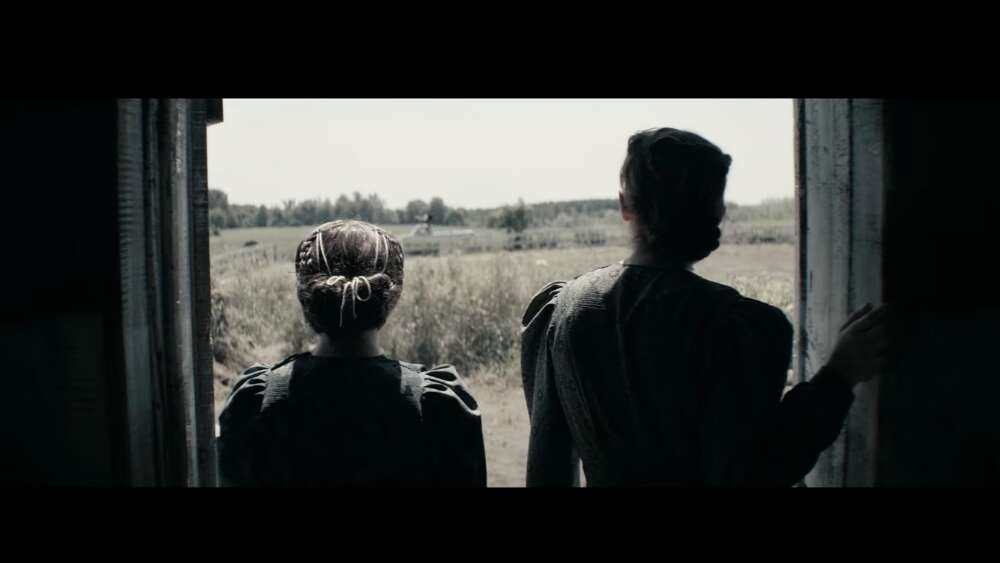Trigger warning: This story discusses sexual assault and domestic violence.
Film review of Women Talking (in Australian cinemas 16 February) – 3.5 out of 5 stars
Films like Women Talking rip open the considerations of why filmmaking is such an influential medium. The film is based on a novel by Canadian author Miriam Toews which gives an “imagined response” to real events that impacted the women of Manitoba Colony, an isolated Mennonite colony in Bolivia, between 2005 and 2009. The story is fascinating and repellant at the same time. As this production contains some of the best actresses of this generation being relegated to one room to hash out the future of every woman in this community, the performances are marvellous, while crippling for the soul.
Within this sect of the Mennonite tradition, the women are relegated to servitude and not allowed to be educated. Still, they are taught the scriptures of the Bible and most have developed a devout faith that establishes their moral centre. When it is discovered that the men of this small society have been using anesthetics to drug and rape the women and girls at night for many years, the women must determine if they will remain and not do anything, stay and fight or merely leave all they have known behind. While the men are away, this leads to a vote among the women and the eventual development of a council to determine what the ladies should do with their lives and the lives of their children.
As a reviewer of cinema, the compelling performances of each actor proved to be definitive for many of their careers. Rooney Mara, Claire Foy, Jessie Buckley, Judith Ivey and Sheila McCarthy each deliver displays of emotion and verbal mastery that complement the whole production without stealing the limelight from the ensemble. Interestingly, one of the best performances comes from the only male representative in the film, as Ben Whishaw is allowed to develop into a multi-layered character within this tragic community atmosphere. Sarah Polley’s direction manages to honour the cultural nuances of this religious sect while allowing each individual to develop their own story in this construct. As each layer of the back story unfolds before the viewer, something special is exposed about this combination of talent that deserves recognition.
Has the viewing public hit their limit on whether they desire to be entertained by these stories, too?
Yet, while sitting through these magnificent performances, there remained the painful reality that so few audiences will want to endure the pain that gushes from the screen. As the impact of the #MeToo movement continues to inspire and influence the film industry, there is a wonder when the saturation point will occur. Throughout the years, things continue to be exposed about the vicious nature of abuse hidden within many religious organisations, businesses and educational facilities. Has the viewing public hit their limit on whether they desire to be entertained by these stories, too? Women Talking should receive accolades as compelling storytelling. Still, it may suffer from being lost in the superabundance of these tales of unfortunate and avoidable woe.
Reel Dialogue: What is the limit on forgiveness?
“What is impossible with man is possible with God.” (Luke 18:27)
Is there such a thing as an unforgivable sin?
One of the many confronting elements of Women Talking has to be the consideration of forgiveness. Can these women forgive the men of the community for perpetrating these horrific actions? Should they? Miriam Toews’ story forces the topic that seeps into the very fabric of this tight-knit community. The author weaves a tale that centres on this question for the ages: how far is too far when it comes to being able to forgive the ones you love?
Interestingly, this is at the heart of the message of the Bible, too. Not just the question of forgiveness within marriage, but more importantly, between God and mankind. Regardless of what we have done against God or others, the God of the Bible is willing to forgive those willing to seek his forgiveness.
You can explore more about God’s forgiveness here: Isaiah 59:1-2, Ephesians 1:7, 2 Timothy 2:13, 1 John 1:9.
Russ Matthews works for City Bible Forum as the Product Manager for The Edge and Reel Dialogue. He has a passion for film and getting conversations started on themes from these visual creations. This review first appeared on Third Space and is republished with permission.
If you have been impacted by sexual assault, domestic or family violence and abuse, a 24 hour, confidential information, counselling and support service is available in Australia by telephoning 1800 RESPECT (i.e. 1800 737 732), along with an online chat service. Please call 000 if you are in danger.
Email This Story
Why not send this to a friend?



